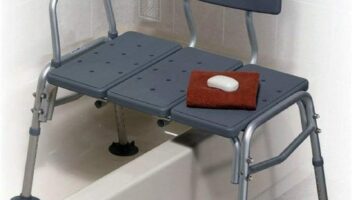Living with Agoraphobia and Finding Hope in Modern Treatment
Agoraphobia. For those experiencing it, the very thought might evoke a whirlwind of emotions—fear, frustration, and resignation. If you’ve ever felt your heart race, your hands sweat, and a deep, paralyzing fear of leaving the house, you’re not alone. Many people struggle with agoraphobia, but there’s hope. Let’s dive into the treatment options available and how they can help reclaim your life.
Understanding Agoraphobia: You’re Not Alone 🤝
Agoraphobia isn’t just a fear of open spaces. It’s an anxiety disorder that can make someone feel afraid of places or situations where escape might be difficult, or help unlikely in the event of a panic attack. It can be incredibly isolating.
I remember my first encounter with agoraphobia vividly. A close friend started declining invitations, stopped going to work, and eventually, wouldn’t leave their house at all. Seeing someone so dear struggle so profoundly motivated me to dig deeper into understanding and helping treat this condition.
Traditional Therapy: Tried and True Methods
When it comes to treating agoraphobia, traditional therapy has been a cornerstone.
Cognitive Behavioral Therapy (CBT): This is one of the most effective treatments. CBT helps individuals understand and change their thought patterns that lead to anxiety.
Exposure Therapy: This method involves gradual exposure to feared situations to reduce anxiety over time.
Medications: Anti-anxiety and antidepressant medications can sometimes be part of the treatment plan.
The Rise of Online Therapy: A Game Changer for Agoraphobia 🖥️
While traditional therapy is effective, there’s a modern twist that’s proving exceptionally helpful: online therapy. This might be the best news for anyone dealing with agoraphobia.
Online therapy allows you to receive help from the comfort—and safety—of your home. Here’s how:
Convenience and Accessibility: No need to plan trips outside or deal with crowded waiting rooms.
Personalized Treatment Plans: Many online therapists specialize in treating agoraphobia and can tailor sessions to your unique needs.
Continual Support: With online platforms, you often have more flexibility to interact with your therapist through messages or video calls as you progress.
For those ready to take the first step towards overcoming agoraphobia, I highly recommend exploring online therapy options. This could be a life-changing opportunity to reclaim your independence.
My Personal Take: Real Stories of Triumph 🌟
I’ve watched countless stories unfold, but one stands out. Jane, a colleague, had been homebound for over a year due to severe agoraphobia. Simple things like grocery shopping were nightmares for her.
Jane started online therapy. With the unwavering support of her therapist, she began to work on her fears systematically. Week by week, she gradually exposed herself to her anxieties. Slow walks to the mailbox turned into short drives. Eventually, she managed to attend a small family gathering—something she never thought possible.
Her journey wasn’t easy. There were setbacks and frustrations. But the flexibility and support of online therapy made an enormous difference. Jane’s story is a testament to the power of accessible treatment and the human spirit’s resilience.
Taking the First Step: Overcoming Initial Hesitation
Taking the initial step to seek help can be daunting. But remember, seeking help is a sign of strength, not weakness. Whether through traditional avenues or online therapy, it’s essential to begin somewhere. It’s okay to start small.
Tools and Techniques: What Works Best
Various tools and techniques can complement therapy sessions:
Mindfulness and Relaxation Exercises: These can help manage anxiety in real-time.
Support Groups: Connecting with others who understand can provide comfort and practical advice.
Journaling: Keeping track of your thoughts and progress can be a powerful motivator.
Tips for Loved Ones: How to Support Someone with Agoraphobia 💕
If you have a loved one dealing with agoraphobia, your support is crucial. Here are some ways to help:
Be Patient: Understand that progress can be slow and nonlinear.
Offer Practical Help: Small acts like running errands can relieve daily pressures.
Encouragement: Gentle encouragement can motivate them to keep trying.
Moving Forward: Embrace Hope and Possibility
The future may seem uncertain, but with the proper support and tools, overcoming agoraphobia is possible. Treatment, whether traditional or online, offers a beacon of hope. If you or someone you know is struggling, consider taking the step towards healing today. Explore online therapy options and embark on a journey towards reclaiming your life.
Remember, every small step counts. Your journey to overcoming agoraphobia starts now. 🌈
Disclosure:
Hospitals.net is a participant in the Amazon Services LLC Associates Program, an affiliate advertising program designed to provide a means for sites to earn advertising fees by advertising and linking to Amazon.com, .ca, .co.uk, etc.
AI Disclaimer:
Hospitals.net uses artificial intelligence (AI) tools to assist in gathering and summarizing product information, including reviews and other relevant data for Amazon products and services. While we strive to ensure the accuracy of the information provided, AI-generated content may not always reflect the most up-to-date or accurate details. The information on our site should not be considered professional advice, and users are encouraged to verify any product details directly with Amazon or other official sources before making a purchase.
We do not guarantee the completeness or accuracy of the AI-generated content and are not liable for any discrepancies or errors. Any reliance on the information provided is at the user’s own risk. By using this site, you acknowledge that product availability, pricing, and other details may change over time, and Hospitals.net is not responsible for these changes.
Health Disclaimer:
The health products and information provided on Hospitals.net are for informational purposes only and are not intended to substitute professional medical advice, diagnosis, or treatment. Always consult a qualified healthcare provider or medical professional before using any health products or following any advice you find on this site. The content on Hospitals.net, including product recommendations and reviews, is not a substitute for individualized care from a healthcare provider.
We make no warranties or representations regarding the effectiveness, quality, or safety of the products listed on our site. Any use of these products is solely at your own risk. Hospitals.net is not liable for any harm, injury, or adverse effects that may result from the use or misuse of the health products or information provided.
Please read all product labels, warnings, and directions provided by the manufacturer before using any product. If you have any questions about a product or its suitability for your condition, we recommend contacting the manufacturer directly or consulting a healthcare professional.
If you have any concerns regarding the accuracy of the information on this site, please contact us for further clarification.



